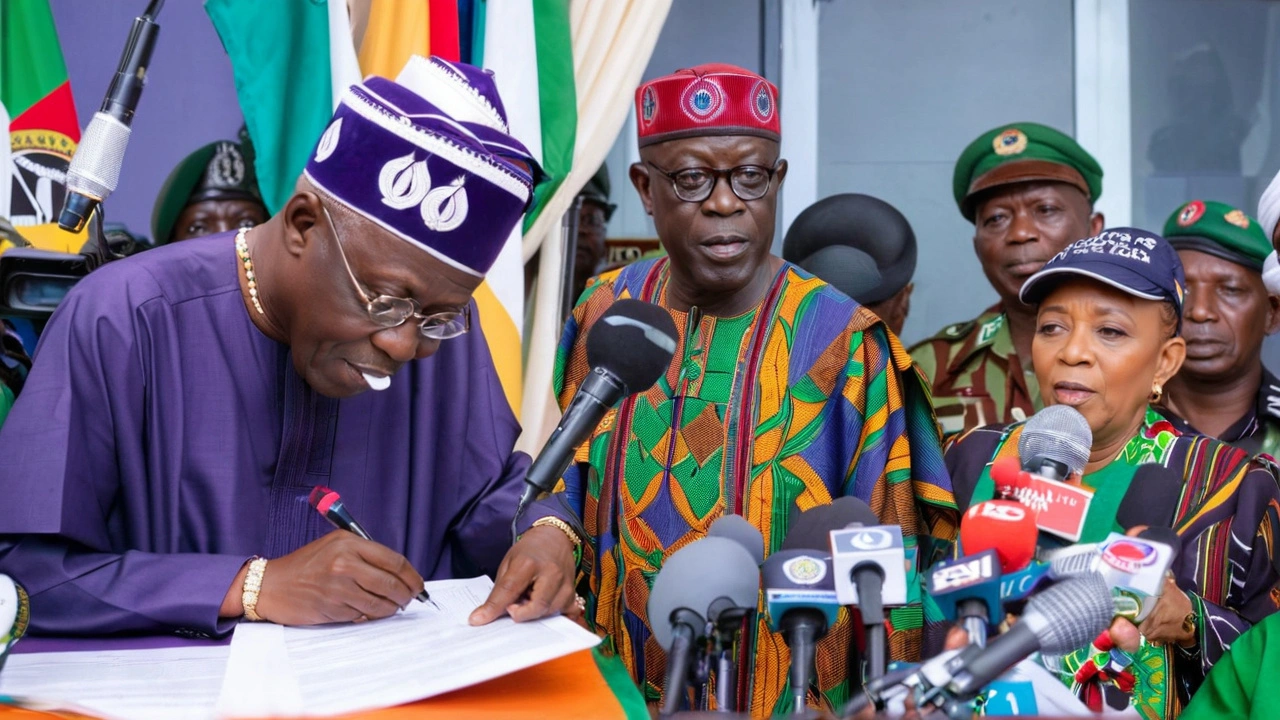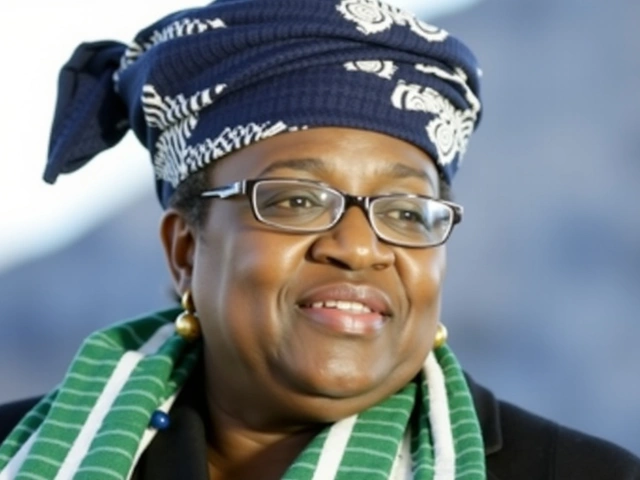N70,000 Minimum Wage Bill Awaits Presidential Assent
In a significant and eagerly awaited development, Nigeria is on the verge of implementing an updated minimum wage of N70,000. This move comes after the rapid passage of the National Minimum Wage Act 2019 (Amendment Bill) by both the Senate and the House of Representatives. By next week, President Bola Tinubu is expected to put pen to paper, converting the bill into law.
The fast-paced legislative action began with President Tinubu's submission of the proposed amendment to the National Assembly. On July 23, both legislative chambers swiftly moved to pass the bill, addressing what has been a crucial issue for the nation's workforce. The finalized bill was transmitted to President Tinubu on Thursday, July 25, as confirmed by Senator Abdullahi Gumel, the senior special assistant on National Assembly Matters.
New Minimum Wage and Its Impacts
The new N70,000 minimum wage represents a significant increase from the previous N30,000 minimum wage, which expired on April 18, 2024. It's aimed at providing a better standard of living for the nation's workers, including domestic employees such as house help, apprentices, and other similar job categories. This adjustment intends to ease the financial burden on Nigerian households and improve the economic stability of numerous families.
Unlike the former policy, which mandated a five-year period before any review, this amendment introduces a more frequent review cycle every three years. The periodic reviews are set to ensure that the minimum wage remains relevant and reflective of the economic realities faced by Nigerian workers.
Legislative Journey and Quick Passage
The bill's journey through Nigeria's legislative process was notably quick, underscoring its importance to both the government and the citizens. After President Tinubu's initial presentation, lawmakers in both houses eagerly engaged in discussions, reflecting bipartisan support for the amendment. The swift passage indicates a collective acknowledgment of the need for a living wage that can keep pace with inflation and the rising cost of living.
On July 23, legislators in the Senate and House of Representatives overwhelmingly voted to pass the bill. With its approval finalized on July 24, the document was promptly transmitted to the president the next day. Senator Abdullahi Gumel's confirmation of this timeline has heightened anticipation among the public and stakeholders.
Public and Labor Reactions
The announcement of the projected signing date has been met with widespread acclaim from various labor unions and public sectors. Many see it as a long overdue step towards addressing income inequality and improving the welfare of workers who are often the backbone of the economy. Labor leaders have publicly expressed their optimism that the president's assent will usher in an era of more equitable wages across various employment sectors.
However, some economists and business leaders have raised concerns about the potential impact on small and medium-sized enterprises (SMEs). They argue that while the wage increase is necessary, it must be balanced with considerations for businesses that may struggle to meet the new financial obligations. This dichotomy has sparked debates on how to sustain economic growth while ensuring that workers receive fair compensation.
Implementation and Future Reviews
Once the bill is signed into law, immediate steps will be taken to begin its implementation. The government will establish monitoring bodies to ensure compliance and support businesses in the transition process. Training and informational sessions might be conducted to educate employers and employees about their rights and obligations under the new wage law.
The shift to a triennial review system is seen as a pragmatic approach to wage management. It allows the government and stakeholders to periodically assess the economic climate and make necessary adjustments to the minimum wage. This proactive method is aimed at preventing the long gaps that have historically led to significant disparities between earnings and the cost of living.

Broader Socio-Economic Implications
The introduction of a higher minimum wage is expected to have ripple effects across the economy. Increased earnings for workers could lead to higher consumer spending, thereby boosting the economy. However, it is also essential to consider the inflationary pressures that might arise as businesses adjust to increased labor costs.
Experts believe that the overall benefits of the new wage law will outweigh potential downsides. Enhanced purchasing power among workers could stimulate demand for goods and services, creating a positive cycle of economic growth. Moreover, by addressing poverty and income inequality, the policy is likely to contribute to social stability and reduced crime rates.
Moving forward, the government, in collaboration with other stakeholders, will need to carefully monitor the impacts of the new minimum wage. Support mechanisms, such as subsidies or tax breaks for SMEs, may be necessary to cushion any adverse effects on smaller businesses. Transparent communication channels and feedback systems will be crucial for assessing the law's effectiveness and making data-driven adjustments in future reviews.
As the nation awaits the official signing of the bill, there is a palpable sense of anticipation and hope. President Tinubu's expected assent to the N70,000 minimum wage bill marks a significant milestone in Nigeria's labor policy. It is a critical step towards ensuring that every worker receives a fair wage, setting a new standard for labor rights in the country.






Write a comment